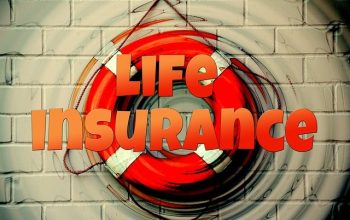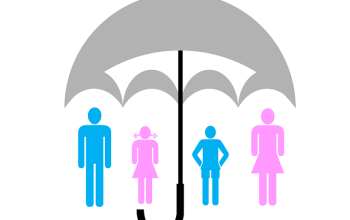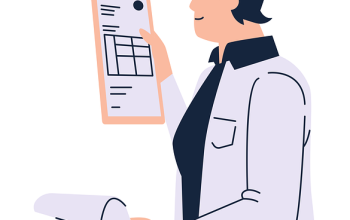General Liability Insurance is a critical safety net for businesses and individuals, protecting against financial losses from third-party claims involving bodily injury, property damage, or personal and advertising injuries. For small businesses, understanding the nuances of Public Liability Insurance, Product Liability Insurance, and Professional Liability Insurance—a form of Business Liability Coverage that protects against claims of professional negligence—is essential for safeguarding operations against various risks. Product Liability Insurance specifically addresses liability from product defects or malfunctions. Small businesses must also consider Commercial Liability Insurance to ensure comprehensive protection against unfounded claims and the costs associated with defending such claims, thereby maintaining financial stability in an environment where legal challenges are common. Ensuring the right mix of these insurance types within a Small Business Insurance plan is crucial for resilience and continuity in business operations.
When safeguarding against the unforeseen, Third-Party Liability insurance stands as a pivotal defense for both individuals and businesses. This critical coverage extends beyond the policyholder to shield against claims from external parties involved in incidents leading to bodily injury, property damage, or legal liabilities. For businesses, it’s an indispensable component of Small Business Insurance, guarding against customer-related accidents or client disputes. Individuals, particularly those with Commercial Liability Insurance like auto owners, benefit from its protective umbrella in scenarios such as car collisions that involve other parties. Understanding the nuances of General Liability Insurance, the specificity of Professional Liability Insurance, and the comprehensive nature of Public and Product Liability Insurance is essential for anyone seeking robust protection against third-party claims. This article delves into these aspects, ensuring you are well-informed on how to choose the right coverage tailored to your needs.
- Understanding Third-Party Liability Insurance: A Comprehensive Guide for Businesses and Individuals
- Key Aspects of General Liability Insurance in Protecting Against Third-Party Claims
- The Role of Professional Liability Insurance in Safeguarding Businesses and Professionals
- Navigating Public and Product Liability Insurance: Ensuring Protection for a Wide Range of Business Activities and Products
Understanding Third-Party Liability Insurance: A Comprehensive Guide for Businesses and Individuals
Understanding Third-Party Liability insurance is crucial for both businesses and individuals to safeguard their financial well-being in the event of legal claims arising from accidents or injuries caused to third parties. General Liability Insurance serves as a broad form of protection that covers a wide range of risks, including those that occur on your premises or due to your advertising activities. For businesses, having this coverage is essential, as it addresses potential claims for bodily injury, property damage, and personal and advertising injury. This includes scenarios where customers or clients sustain injuries on your business premises or if your business’s promotional activities inadvertently cause harm to someone’s reputation.
Similarly, individuals should consider Personal Liability Insurance, which can be an integral part of comprehensive small business insurance packages or standalone policies. This coverage is particularly relevant for individuals who operate their own businesses or engage in activities where there is a risk of causing injury or damage to others, such as through products or services offered. Product Liability Insurance, a subset of Third-Party Liability insurance, is designed specifically for manufacturers, distributors, and sellers, providing coverage for claims arising from defective products that may harm consumers. For professionals, Professional Liability Insurance (also known as Errors and Omissions insurance) offers protection against claims of negligence or harm due to professional advice, services, or actions. Commercial Liability Insurance can be tailored to the specific needs of a business, ensuring robust coverage against a diverse array of liability exposures. By understanding the nuances of these coverages and how they apply to your situation, you can make informed decisions about the types and levels of Third-Party Liability insurance that are right for your business or personal circumstances.
Key Aspects of General Liability Insurance in Protecting Against Third-Party Claims
General Liability Insurance serves as a crucial shield for businesses and individuals alike against third-party claims arising from bodily injury, property damage, and personal and advertising injury. For instance, if a customer slips and falls on business premises due to a wet floor that wasn’t clearly marked, the business owner may face a liability claim. General Liability Insurance can help cover the costs associated with such claims, including medical expenses, legal fees, and settlements or judgments. This type of coverage is not limited to physical locations; it also extends to digital spaces where professional services are offered. Professional Liability Insurance, often considered a subset of General Liability Insurance, specifically addresses claims related to professional advice or services that did not have the intended outcome, ensuring that professionals can operate without the fear of financial ruin from lawsuits.
Small businesses, in particular, benefit greatly from this comprehensive protection. Public Liability Insurance, tailored for interactions with the public, can protect a small business owner from financial loss if an incident occurs, such as a child getting injured at a daycare center due to faulty equipment. Furthermore, Product Liability Insurance is essential for businesses that manufacture, sell, or distribute products. It covers claims resulting from product malfunctions or defects that cause harm to users. In the event of such incidents, Commercial Liability Insurance can provide a safety net by offering coverage that addresses both the liability and the costs associated with defending against unfounded claims. This robust coverage is not just for large corporations; it is an indispensable aspect of Small Business Insurance, ensuring peace of mind and protecting the bottom line against the unpredictable nature of third-party claims.
The Role of Professional Liability Insurance in Safeguarding Businesses and Professionals
General Liability Insurance serves as a critical shield for businesses against claims arising from third-party bodily injuries, property damage, and personal and advertising injury claims. It is an essential component of small business insurance portfolios, safeguarding against the financial repercussions of unforeseen events that could otherwise disrupt business operations. For professionals, Professional Liability Insurance, also known as Errors and Omissions (E&O) insurance, offers specialized protection against claims of negligence or harm due to professional advice, services, or recommendations provided to clients. This coverage is indispensable for those in fields such as law, medicine, accounting, and consulting, where a single error or oversight could lead to costly litigation.
Product Liability Insurance is a subset of Commercial Liability Insurance that specifically addresses the risks associated with selling products. It ensures that businesses are not held financially responsible for injury claims resulting from product defects or malfunctions after they have left the supplier’s control. In the event of a claim, this insurance covers the cost of defending against lawsuits as well as any damages awarded to the injured party. For businesses interacting with a wide range of clients and stakeholders, having robust Business Liability Coverage is not just a precaution—it’s a prudent business practice that can prevent financial ruin when faced with the legal implications of liability claims.
Navigating Public and Product Liability Insurance: Ensuring Protection for a Wide Range of Business Activities and Products
Navigating the complexities of public and product liability insurance is a critical aspect for businesses seeking to protect their operations from a wide array of risks. General Liability Insurance serves as a foundational layer of defense, covering claims related to bodily injury, property damage, and personal and advertising injuries. This type of coverage is indispensable for small businesses that interact with the public, as it offers financial protection against legal action resulting from accidents or harm caused on business premises or by business-related operations.
In addition to General Liability Insurance, Professional Liability Insurance, also known as Errors and Omissions (E&O) insurance, is tailored for businesses providing professional advice, services, or consultancy. It safeguards against claims alleging negligence or mistakes in the delivery of professional services. For businesses that manufacture, sell, or distribute products, Product Liability Insurance is essential. It addresses liability claims arising from product defects or failures, ensuring that even if a third-party sustains injury or damage due to a product malfunction, the business remains solvent. Together, Business Liability Coverage, Public Liability Insurance, and Product Liability Insurance form a robust shield under Commercial Liability Insurance policies. These coverages are not only about mitigating risks but also about ensuring the longevity and trustworthiness of a business in the eyes of its customers and stakeholders. It’s advisable for businesses to carefully assess their liability exposure and select appropriate coverage to maintain operational integrity and financial stability.
In conclusion, Third-Party Liability insurance serves as a critical safety net for businesses and individuals alike. General Liability Insurance, Professional Liability Insurance, and Commercial Liability Insurance are integral components of a robust risk management strategy. They provide comprehensive protection against third-party claims, which can arise from various business operations, including public interactions and the use of products or services. For small businesses, in particular, understanding and securing the appropriate liability coverage is not just prudent—it’s indispensable for safeguarding assets and maintaining financial stability in the face of unforeseen events. By integrating Public Liability Insurance and Product Liability Insurance into their insurance portfolios, entities can confidently navigate their business endeavors, knowing they are protected against potential legal liabilities that could otherwise lead to significant financial repercussions. It is advisable for all businesses to carefully assess their liability exposure and secure appropriate coverage to ensure continued operation and peace of mind.



